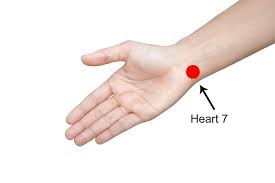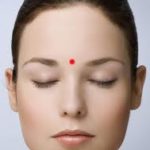Proven Approaches to Overcome Insomnia and Sleep Disturbances
- Britta Van Dun
- Oct 14, 2024
- 6 min read
Updated: Oct 15, 2024

A few years ago, I wrote a post that gathered together best practices to improve sleep and alleviate insomnia. The field of popular sleep science has exploded since then and contemporary research now takes into account individual and underlying etiologies that weren’t highlighted then. If you’d like a foundation on the basics of overcoming insomnia and improving sleep, please reference that earlier post.
For any worthwhile treatment, we need to consider contributing factors like lifestyle, stress, sleep habits, concomitant health conditions, emotional and physiological imbalances and so on.
If you’re having difficulty sleeping because of an acute event like a career change, auto accident or relationship breakup, practicing stress-reduction and general good sleep hygiene could make a world of difference. A few acupuncture, coaching, and/or Craniosacral treatments have helped most of my clients get their sleep and overall wellbeing back on track after a powerful life event. Even adding a soothing herbal tea like Chamomile or Nighty Night can tip the scales in favor of lulling you back into dreamland.
If deeper health issues are causing a sleep imbalance, say chronic pain, restless leg, or a hormonal imbalance, it’s important to run some blood tests to get a clearer picture. Based on results, we’d want to treat any underlying factors as well as consider nervous system supports and dietary choices - see how far that takes you. If the sleep issue is chronic and you’re consistently experiencing insomnia (i.e., longterm difficulty falling asleep, staying asleep or broken sleep, waking early or intermittently, or a combo of these), then we’d want to identify any significant physical, medical or emotional events and patterns. We’d treat the underlying and concomitant symptoms, see how sleep hygiene can be improved, talk about weekly acupuncture appointments, and consider different supplements and remedies.
If you’ve found yourself in the more chronic insomnia category, it’s essential to also unwind any negative beliefs associated with sleep. If you dread going to bed because you don’t want to spend another night tossing and turning, for example, we’d discuss how to compassionately reframe what sleep means to you so that it might start to carry more positive connotations. We’d want to look at your resting and waking cortisol levels as well as circadian rhythm. If your circadian cycle is off piste, we’d discuss strategies of how to get it back on track. Simple ways to recalibrate your internal clock is to get morning sunlight on the daily and limit blue light exposure (from screens) in the evening. Cognitive Behavioral Therapy for Insomnia (CBT-I) has proven extremely successful for people whose picture isn’t complicated by endocrine imbalances or other impactful physiological health factors. CBT-I has become increasingly affordable the past few years, and, even though the program can be a bit grueling to start, virtual sleep coaches abound and the results are impressive.
Full disclosure: I’ve navigated sleep issues for more than a dozen years due to an underlying condition called Mast Cell Activation Syndrome (MCAS). I learned the hard way that I do not tolerate even hypoallergenic herbal formulas and usually hyper-react adversely to most medications and supplements. My inability to metabolize standard go-to solutions for most people meant that I had to seek answers betwixt and beyond Western Allopathic, Chinese, Naturopathic, Functional and Integrative Medicines. Most of the recommendations that I offer here are options that I can't actually take. But. Maybe you can! In case you're curious, what works for me is a unique combination of dietary therapy, homeopathic remedies, exercise, acupuncture, stress-reduction, nervous system balancing, an awesome probiotic tailored to significantly reduce histamine, targeted vitamins and minerals, and minimum dose bio-identical hormones. With this continually evolving cocktail, I’m getting better sleep than I have in years. Thank Goodness! If y’all have sleep issues, you know what a huge deal this is!
Wherever you are on the spectrum of disordered sleep - from mild to moderate to severe, there absolutely IS hope. And my heart is with you. If I can support you in any way - through Acupuncture Chinese Medicine, Craniosacral Therapy, Homeopathic remedies, transformational life Coaching, ideas around remedies and supplements, please reach out. Getting a good night’s rest is not only paramount to your mental and physical health, it’s also, well, dreamy . . .
As always, I'm not a doctor and the ideas offered here and anywhere on my site are not to be considered medical advice nor a substitute for medical care. With all that disclaimed:
How to Naturally Decrease Insomnia and Improve Sleep Quality
Please see my Earlier Blog Post
Optimize your Sleep Environment: Make sure that your bedroom is dark, cool, and quiet. Use blackout curtains, white noise machines, and/or earplugs, and set the temperature a few degrees cooler than you’re accustomed to during the day. They say 65 degrees, but that would be arctic for this Tucsonan. Find what works best for you.
Wind-Down Rituals: Establish a calming bedtime routine like reading, deep breathing, or gentle stretching to signal to your brain that it's time to sleep.
Turn off Gadgets Before Bed: Avoid screens (phones, tablets) for at least 1-2 hours before bed to let the mind relax and to prevent blue light from interfering with melatonin production.
Limit Stimulants: Reduce caffeine intake after midday and conclude eating meals about 3 hours before bedtime. Alcohol can give the appearance of helping people wind-down, but it’s actually a depressant which adversely affects the liver. That’s why after a night of drinking you might notice waking around 3am, when the Liver is active and detoxing and other systems are dumping histamines (histamine has a close relationship with cortisol - the wake-up and go hormone).
Breathwork and Meditation: Techniques like 4-7-8 breathing or mindfulness meditation can calm the nervous system and prepare the body for rest.
Body-Mind Balance: Practices like Acupuncture, Craniosacral therapy, Vagal Toning, and yoga nidra all promote deep relaxation and help regulate the nervous system for better sleep quality.
For Perimenopause or Menopause related Sleep Issues: Definitely chill on the coffee/caffeine and sugar intake and talk to your doctor about herbs like black cohosh, supplements, bioidentical hormone replacement, and/or probiotics. Consider adding foods high in phytoestrogens like soy, flaxseeds, and chickpeas, all of which support hormone balance and can improve sleep.
Acupressure: Apply gentle pressure to specific points like Heart Shen Men (HT7) on the wrist to soothe the heart and calm the mind, Yin Tang (between the eyebrows) to quiet the mind, and HeGu LI4 to release endorphins and relieve stress.
Top 5 Homeopathic Remedies Recommended for Better Sleep
Coffea Cruda: Recommended for those with racing thoughts or who are mentally overstimulated, leading to insomnia. It's ideal for those who find it hard to "shut off" their brain at night.
Nux Vomica: Best for individuals who experience restless sleep and waking up around 3-4 AM, often due to overwork, stress, or the use of stimulants (like caffeine or alcohol).
Ignatia Amara: Helpful for sleep disturbances caused by grief, emotional stress, or disappointment. It's suited for people who experience sighing, emotional outbursts, or a lump-in-the-throat sensation.
Arsenicum Album: Indicated for the person who suffers from anxiety-driven insomnia, especially people who wake up frequently with feelings of restlessness or fear, and feel chilly at night.
Chamomilla: Chamomilla has a calming effect on most people and is recommended when a person experiences irritability or nighttime agitation. Often helpful for children and adults who wake up frequently and are unable to settle down.
These remedies should be taken according to individual symptoms and under guidance from a trained homeopath.
Popular & Effective Supplements that can Improve Sleepy Quality
Magnesium Glycinate: Known for its calming effect on the nervous system, magnesium supports relaxation and muscle function, which can enhance sleep quality.
Melatonin: A natural hormone that regulates the sleep-wake cycle, melatonin is particularly effective for adjusting to time zone changes or overcoming mild sleep onset issues. Melatonin can be taken in very low doses to be effective, so start low and slow and take breaks every few weeks.
L-Theanine: Found in green tea, this amino acid promotes relaxation without causing drowsiness, helping ease anxiety and stress for better sleep.
GABA (Gamma-Aminobutyric Acid): GABA is a neurotransmitter that reduces neuronal excitability. Taking GABA can help calm the mind and improve sleep quality by promoting relaxation.
Valerian Root: A well-known herb for sleep disorders, valerian root helps reduce the time it takes to fall asleep and enhances sleep depth by increasing GABA availability in the brain.
These supplements should be taken according to individual symptoms and under the guidance of a trained allopathic, integrative, functional, or naturopathic doctor.




Comments